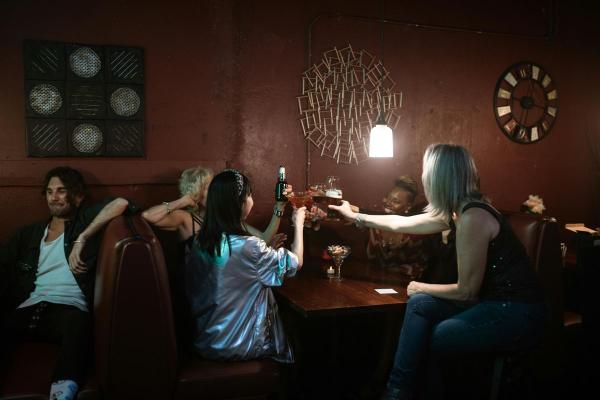Stories Of Swinging
Back To SwingTowns- stories of swinging swingers
- stories of swinging groups
- stories of swinging clubs
- stories of swinging parties
- stories of swinging stories
- stories of swinging forums
- stories of swinging blogs

- Dogging
- Hot Wife
- Real Swingers
- Ads Casual Sex
- Swapper Ads
- Adult Ads
- Adult Amateur Swingers
- Adult Chat Swinger
- Adult Classifieds
- Adult Date
- Adult Date Link
- Adult Date Sex
- Adult Dating
- Adult Dating Personals
- Adult Free Personals
- Adult Personal Ads
- Adult Photo Personals
- Adult Sex Ads
- Adult Sex Classifieds
- Adult Sex Club
- Adult Sex Dating
- Adult Swapping
- Adult Swinger Ads
- Adult Swinger Finder
- Adult Swinger Pic
- Adult Swinger Site
- Adult Swinger Video
- Adult Swingers
- Adult Swingers Club
- Adult Swinging
- Adult Threesome
- Alternative Lifestyle
- Alternative Lifestyle Club
- Alternative Lifestyle Swinging
- Alternative Lifestyles
- Amateur Sex Club
- Amateur Swapping
- Amateur Swapping Wife
- Amateur Swinger Sex
- Amateur Swinger Wife
- Amateur Swingers Forums
- Amateur Swingers Clubs
- Amateur Swingers Party
- Amateur Swingers Ads
- Amateur Swingers Story
- Amateur Swingers
- Amateur Swinging
- Anal Threesome
- Asian Swingers
- Bbw Adult Personals
- Bbw Swinger
- Bbw Swingers
- Bi Sex Swingers
- Bi Swingers
- Bisexual Swingers
- Black Adult Dating
- Black Bbw Swingers
- Black Sex Club
- Black Swingers
- Black Swingers Alliance
- Black Swingers Club
- Black Swingers Free
- Brunette Threesome
- Busty Threesome
- Casual Dateline Sex
- Casual Free Sex
- Casual Gay Sex
- Casual Sex
- Chat Free Swinger
- Chat Room Swinger
- City Swingers
- Club Date Swinger
- Club Swapping
- Club Swapping Wife
- Couple Swap
- Couple Swapping
- Cum Cuties Swapping
- Date Free Sex
- Date Gay Sex
- Sex Date
- Dc Swingers
- Discreet Dating
- Ebony Threesome
- Erotic Dating
- Erotic Threesome
- Erotic Threesome Story
- Fantasy Swingers
- Female Swinger
- Find Swingers
- Free Adult Classifieds
- Free Adult Dating Site
- Free Adult Personal Ads
- Free Adult Sex Ads
- Free Adult Swinger Ads
- Free Adult Swingers
- Free Forum Swinger
- Free Lesbian Threesome
- Free Local Swingers
- Free Real Swingers
- Free Sex Club
- Free Sex Dating
- Free Sex Swingers
- Free Swapping Wife
- Free Swinger Ads
- Free Swinger Party
- Free Swinger Personal
- Free Swinger Personals
- Free Swinger Pic
- Free Swinger Site
- Free Swingers
- Free Swingers Chat Rooms
- Free Swingers Photo Ads
- Free Swinging
- Free Threesome Pic
- Girlfriend Swapping
- Gay Swingers
- Group List Swinger
- Group Sex Club
- Group Sex Swingers
- Hedonists
- Her First Threesome
- Hot Match
- Hot Matchup
- Hot Swinger Wife
- Hot Wives
- Housewife Real Swinging
- Housewife Swapping
- How To Talk Your Wife Into A Threesome
- Internet Swingers
- Interracial Swapping Wife
- Interracial Swingers
- Interracial Threesome
- Lesbian Sex Club
- Lifestyle
- Lifestyle Choice
- Lifestyle Personals
- Lifestyle Swapping
- Lifestyle Swinging In America
- Live Sex Club
- Local Swingers
- Married Adult Personals
- Mate Swapping
- Mature Swinger
- Mature Swingers
- Mature Swinger Wife
- Mature Swinging
- Meet Swingers
- Mff Threesome
- Mile High Club Sex
- Nude Swinger
- Nude Swingers
- One Night Stand
- Open Marriage
- Open Relationship
- Orgy Party Swinger
- Orgy Swapping Wife
- Partner Swapping
- Party Real Swinger
- Party Swapping
- Party Swapping Wife
- Personal Swingers Page
- Photo Swap
- Photo Swapping
- Photo Trade Wife
- Pic Swapping
- Pic Trade Wife
- Picture Swapping
- Picture Trade Wife
- Playful Swingers
- Recreational Sex
- Senior Sex Swingers
- Senior Swinger
- Senior Swingers
- Sex Club Video
- Sex Dating Services
- Sex In Club
- Sex On The Side Club
- Sex Party Club
- Sex Swapper
- Sex Swapping Wife
- Sex Swing Club
- Sex Swingers
- Sex Swinging Group
- Sex Therapist
- Sexy Swingers
- Slut Swapping Wife
- Spouse Swapping
- Stories Of Swinging
- Story Swapping
- Strip Club Sex
- Swap Sex
- Swapper Wife
- Swapping Swinging Wife
- Swing Central
- Swing Club
- Swing Couple
- Swing Lifestyle
- Swing Party
- Swingclub
- Swinger
- Swinger Ad
- Swinger Chat
- Swinger Club
- Swinger Clubs
- Swinger Directory
- Swinger Erotic Story
- Swinger Homepage
- Swinger Kiss
- Swinger Life Style
- Swinger Lifestyle
- Swinger Orgy
- Swinger Orgy Group
- Swinger Party
- Swinger Party Photo
- Swinger Party Pic
- Swinger Personal
- Swinger Personal Adds
- Swinger Personal Ads
- Swinger Personal Web Page
- Swinger Personal Web Site
- Swinger Personals
- Swinger Photo
- Swinger Pic
- Swinger Resort
- Swinger Sex
- Swinger Sex Club
- Swinger Sex Party
- Swinger Sex Picture
- Swinger Sex Site
- Swinger Sex Video
- Swinger Site
- Swinger Vacation
- Swinger Wife Swap
- Swinger Wife Swapping
- Swinger Wife Video
- Swinger Canada
- Swinger Cam
- Swinger Chat Rooms
- Swinger Chats
- Swinger Classifieds
- Swinger Couple
- Swinger Couples
- Swinger Europe
- Swinger Gallery
- Swinger Homepages
- Swinger Pics
- Swinger Pictures
- Swinger Search
- Swinger Sex Chat
- Swinger Story
- Swinger Tale
- Swinger Travel
- Swinger Video
- Swinger Wife
- Swingers Board
- Swingers Contacts
- Swingers Date
- Swingers Heaven
- Swingers Mexico
- Swingers Party
- Swingers Pics
- Swingers Site
- Swingers Sites
- Swingers Ads
- Swingers Bulletin Board
- Swingers Chat Room
- Swingers Club
- Swingers Clubs
- Swingers Convention
- Swingers Cruise
- Swingers Dating
- Swingers Forum
- Swingers Home Page
- Swingers Hotline
- Swingers Lifestyle
- Swingers Links
- Swingers Meeting Place
- Swingers Message Board
- Swingers Online
- Swingers Orgy
- Swingers Parties
- Swingers Pictures
- Swingers Sex
- Swingers Swinging
- Swingers Vacation
- Swingers Video
- Swingers Videos
- Swingers Web Site
- Swingers Wife Party
- Swingers Woodstock
- Swingersboard
- Swingersclubs
- Swinging
- Swinging Club
- Swinging Couple Photo
- Swinging Couples
- Swinging Friends
- Swinging Group
- Swinging Life Style
- Swinging Lifestyle
- Swinging Lifestyle Stories
- Swinging Lifestyles
- Swinging Nudist
- Swinging Parties
- Swinging Party
- Swinging Personals
- Swinging Sex
- Swinging Sites
- Swinging Slut
- Swinging Swapping
- Swinging Wife
- Swingtown
- Swingtowns
- Symbols Of Swinging Lifestyle
- The Swinging Lifestyle
- Threesome Action
- Threesome Experience
- Threesome Fantasy
- Threesome Fun
- Threesome Position
- Threesome Sluts
- Totally Free Adult Personals
- Trade Wife
- Trade Wives
- Tranny Threesome
- True Swinger Story
- Uk Swinger Clubs
- Uk Swingers
- Wife Swap
- Wife Swap Club
- Wife Swap Pic
- Wife Swap Sex
- Wife Swapping
- Wife Threesome
- Www Swingers
- Xxx Swingers
- Young Swingers
- The Lifestyle
Exploring the world of swinging offers a unique lens into the dynamics of modern relationships and personal freedom. This article delves into the history, personal stories, and societal impact of swinging, providing a comprehensive look at its role in shaping contemporary relationships and communities.
Key Takeaways
- Understanding the historical evolution of swinging helps contextualize its role in society today.
- Personal accounts and journeys reveal the challenges and rewards of the swinging lifestyle.
- Swinging influences communication, intimacy, and the structure of relationships and communities.
The Origins and Evolution of Swinging

Historical Context and Early Practices
Swinging, often seen as a modern social phenomenon, has roots that trace back to ancient civilizations. Early practices of partner swapping can be found in texts and folklore, suggesting a longstanding human interest in non-monogamous arrangements.
Cultural Shifts and Modern Acceptance
The 20th century marked significant cultural shifts that led to the modern acceptance of swinging. The sexual revolution of the 1960s and 1970s played a pivotal role, as people began to challenge traditional notions of monogamy and explore alternative relationship dynamics.
Key Figures and Pioneers in the Swinging Scene
Several key figures and pioneers have shaped the swinging scene. Their contributions have not only popularized swinging but also helped establish safer and more structured environments for participants:
- Hugh Hefner and the Playboy lifestyle
- The founders of the first formal swinging clubs
- Influential authors and researchers who studied and wrote about the lifestyle
Personal Journeys into the Swinging Lifestyle

First-time Experiences and Stories
- Many individuals recall their first swinging experience as a mix of nervous excitement and curiosity.
- The initial plunge is often described as a pivotal moment that opens up new avenues of personal and sexual exploration.
Challenges and Overcoming Social Stigma
- Swingers frequently face societal judgment and misconceptions about their lifestyle choices.
- Overcoming these challenges involves building a strong support network and embracing open communication with partners and peers.
Long-term Benefits and Relationship Dynamics
- Couples who engage in swinging often report enhanced communication and revitalized relationships.
- Key benefits include increased trust, better understanding of desires, and a broader sense of community with like-minded individuals.
The Role of Swinging in Contemporary Relationships

Communication and Boundaries
Effective communication is the cornerstone of successful swinging relationships. Establishing clear boundaries ensures that all parties feel respected and secure. Key aspects include:
- Discussing limits and expectations before engaging with others
- Regularly checking in with each other's comfort levels
- Being open about personal feelings and any discomfort that arises
Impact on Intimacy and Trust
Swinging can paradoxically strengthen the bond between partners by enhancing trust and broadening mutual understanding. It's crucial that both partners are equally interested and committed to exploring this lifestyle. Misunderstandings can occur, but with honest dialogue, many couples find their relationship enriched.
Swinging and Relationship Longevity
The impact of swinging on relationship longevity can vary greatly among couples. Some report that it brings a refreshing dynamic to their partnership, while others may struggle with jealousy and insecurity. Factors contributing to success include:
- Strong foundational relationship
- Mutual desire to explore swinging
- Effective management of any arising issues
Community and Social Aspects of Swinging

Finding and Joining Swinging Communities
Navigating the swinger lifestyle involves finding the right community, which can be a pivotal step for newcomers. Key platforms include online forums, dedicated apps, and local clubs, which often host meet-and-greets or introductory events to help ease the transition for new members.
Events and Gatherings
Swinging events range from private, intimate gatherings to larger, organized parties. These events provide a safe space for individuals to explore their interests in a non-judgmental setting, fostering a sense of belonging and community among attendees.
Support Systems and Networking
The support systems within swinging communities are crucial for both new and experienced participants. Networking with other swingers can provide emotional support, advice, and guidance, which is essential for navigating the complexities of the swinger lifestyle and maintaining healthy relationships.
Frequently Asked Questions
What is swinging and how does it differ from other forms of non-monogamy?
Swinging, often referred to as partner swapping, is a form of non-monogamy where individuals in a committed relationship engage in sexual activities with others as a recreational or social activity. It differs from other forms of non-monogamy such as polyamory, as it typically focuses on sexual encounters rather than forming romantic relationships.
How do people ensure safety and consent in the swinging community?
Safety and consent are paramount in the swinging community. Members usually have strict rules and communicate openly about boundaries and expectations before engaging in any activities. Many communities also hold meetings or workshops to educate members about safe practices and consent.
Can swinging have a positive impact on relationships?
Many people in the swinging community report positive impacts on their relationships, including improved communication, renewed sexual excitement, and a stronger bond with their partner. However, it's important to approach swinging with mutual consent and clear communication to ensure it benefits all parties involved.
Embrace the Excitement: Step Into the Spotlight of Local Swinging Scenes
Venture into an oasis of thrilling experiences and dynamic community engagements. Discover the heart of swinging celebrations on SwingTowns, your gateway to spectacular events and joyful connections. Create your free account now and start connecting with local swingers in your area. Dive into a world of limitless fun and intimate discoveries today!
"This site has been super fun. Would highly recommend for all players :)"
Disclaimer
Informational Purpose: This blog provides content solely for general informational purposes and reflects the personal opinions of the author. It is not presented as definitive professional advice and should not be relied upon as such.
As-Is Basis: All information available through this blog is provided "as-is". No guarantees, either express or implied, are made concerning the truthfulness, reliability, completeness, or timeliness of the content provided herein. No warranties of any kind are offered that could be interpreted as applicable to the information on this blog.
Independent Verification: We urge our readers to independently assess and verify any information found on this blog. It is advisable to consult with qualified professional advisors before making any decision based on this content. The author and publisher of this blog assume no responsibility for decisions taken or actions performed based on the information provided here.
Legal Compliance: Users must ensure their actions comply with the relevant laws and regulations applicable within their jurisdiction. This responsibility rests entirely with the user.
Limitation on Liability: Neither the author nor the publisher of this blog shall be held liable for any inaccuracies or omissions in the information nor for the availability of this information. They will not bear liability for any kind of damage, loss, or injury resulting from the use or display of this content.
Risk Acknowledgement: Any actions taken upon the information on this blog are at your own risk. Neither the author nor the publisher will bear responsibility for any resultant damages or losses.



